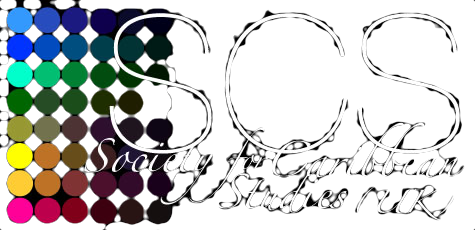
Boum Make, Jennifer
Assistant Professor in the Department of French & Francophone Studies @ Georgetown University
Bio
Jennifer Boum Make is an Assistant Professor in the Department of French & Francophone Studies at Georgetown University. Her research is focused on the French Caribbean, the legacy of colonialism and the French Atlantic slave trade, and care studies. She is currently developing a monograph entitled, Decolonial Care: Reimagining Caregiving from the French Caribbean. This project is a comprehensive exploration of the relationship between the legacies of colonialism and the dynamics of caregiving that have emerged from the French Caribbean.
Geographical location : Washington, USA
Research Area and Interest : French Caribbean, the legacy of colonialism and the French Atlantic slave trade, and care studies
Social Media
Panel(s)
- Summary:
Presentation(s)
- Summary: This contribution proposes a cross-study of two graphic narratives considering the turn to visual storyworlds to memorialize post-war Caribbean transatlantic migration in a Francophone (BUMIDOM, the office for DOM migration, 1962-1983) and in an Anglophone context (following the docking of Empire Windrush in 1948). Péyi An Nou (Creole for “our country”) (2017), a graphic narrative by Jessica Oublié (scenarist) and Marie-Ange Rousseau (illustrator), provides insight into the shrouded history of the BUMIDOM, anchoring individual voices that reflect on their conflictual, dismissive, but also occasionally non-existent relationship to the state-sponsored migration. Oublié and Rousseau then act as investigators into a past about which they so far knew nothing. In Black (2022) by Tobias Taitt and Anthony Smith, Taitt’s autobiographical story as a second-generation Windrush immigrant is narrated looking into the history of post-war Caribbean migration from a first-hand perspective and gaging the social and cultural challenges experienced by the ‘Windrush generation’. On both counts, these narratives capture the personal stories and lives of those who emigrated to the UK and hexagonal France from the Caribbean in the post-war context. What are the specific visual-verbal literacies used to create an archive of voices around Caribbean transatlantic migration? How does point of view and affect differ between Black and Péyi An Nou, from self-portraiture to investigative graphic storytelling respectively? What types of archiving do they eventually propose? This contribution will thus examine how graphic narratives constitute an instrument for transgenerational memorialization as well as analyze the challenges of temporal and/or cultural distance (Péyi An Nou) or affective proximity (Black) when documenting historical events.
